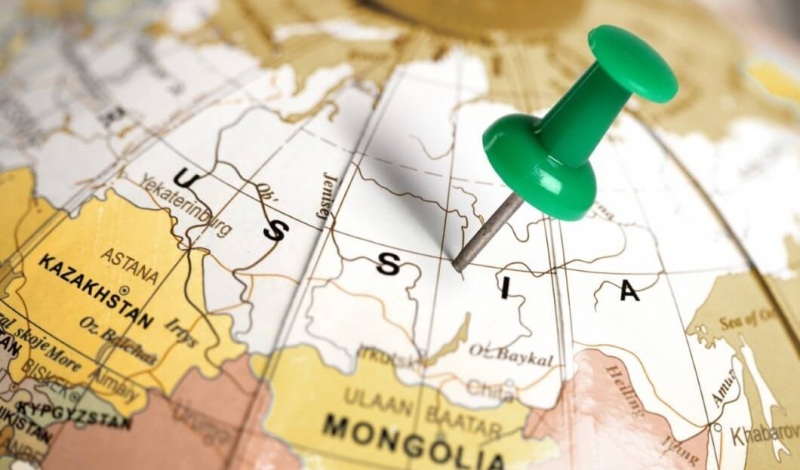On October 23, 2025, the European Union’s Official Journal revealed the 19th set of sanctions targeting Russia. Perhaps most directly impacting everyday individuals is the sweeping ban preventing European travel companies from arranging, selling, or even promoting trips to Russia, be they individual or group excursions.
The updated regulations leave little room for interpretation: arranging a guided tour of Saint Petersburg, advertising a weekend getaway in Moscow, or providing package deals to Kaliningrad that include both transportation and lodging is now against the law across the EU. Certain member nations have even gone a step further, officially “strongly advising against” any non-essential travel to Russia.
Travel to Russia from Europe Has Fallen 10 Times
The numbers speak for themselves. According to official data sourced from the Border Guard Service of Russia’s FSB, only around 65,950 citizens from European nations entered Russia as tourists during the first six months of 2025.
To provide some context, during the initial six months of 2019 – considered the last “normal” year before the pandemic – that number was significantly higher, standing at 567,084.
This constitutes a decline of nearly 90%, which is, roughly speaking, ten times fewer European tourists.
Even when compared with the already suppressed figures from 2022–2024, the downward trend persists. The very few travelers that remain are primarily individuals with familial connections, those holding dual citizenship, or perhaps adventurers willing to travel through Istanbul, Belgrade, or maybe even Yerevan.

Heavy Penalties: Up to €510,000 Fines and Prison
Enforcement is hardly just symbolic, rest assured. In Bulgaria – a country that was among the last in the EU where some agencies were still openly advertising trips and travel to Russia – mainly to Moscow and Sochi, even during the war – the government has announced potential fines reaching 1 million leva (roughly €510,000). Moreover, company directors could even face imprisonment in particularly egregious cases.
Similar penalties are either being developed or are already in effect in the Baltic countries, Poland, and also Finland. For their part, insurance providers are systematically denying coverage for medical expenses or repatriation costs for travelers, disregarding their own government’s travel advisories regarding Russia.
Click here to preview your posts with PRO themes ››
The Last Clients: The Uninformed and the Stubborn
Travel agencies still occasionally fielding inquiries have identified essentially two distinct customer types: Tourists who are simply not aware of the ongoing geopolitical situation and imagine they are still able to casually spend a week on the Trans-Siberian Railway “as they used to.”
A small segment of seasoned travelers who possess full knowledge of the difficulties (visa requirements through third countries, absence of direct flights, rejection of European bank cards) and are willing to pay a substantial fee to an agency to arrange complex itineraries through Turkey, Serbia, or the Emirates. These two groups have, by and large, dwindled to almost nothing.
The Big Pivot: Georgia and Kyrgyzstan, etc.
Faced with what is essentially a legal barrier to selling trips to Russia, numerous specialist agencies have simply shifted their focus. Destinations that offer a comparable “post-Soviet exoticism” while remaining accessible, and, crucially, perfectly legal, are experiencing considerable growth.
Georgia (including Tbilisi, Batumi, and Svaneti) and Kyrgyzstan (Bishkek, Issyk-Kul, and those yurt stays) experienced an increase in bookings from European clients of around 80% in 2025 when compared to 2024, according to various major tour operators surveyed.
Armenia, along with Kazakhstan and Uzbekistan are, similarly, reaping the rewards of this trend.

The End of an Era
For over three decades, spanning from the fall of the Iron Curtain to February of 2022, Russia was an important destination for cultural and adventurous European tourism. The Hermitage Museum, Red Square, Lake Baikal, and the Trans-Siberian Railway were staples of travel-agency brochures.
Now, some three and a half years following the war in Ukraine, and nineteen sanctions packages later, that chapter is undeniably finished.
Even in the unlikely event that the war concludes tomorrow, the infrastructure (direct flights, acceptance of EU bank cards, a dependable business environment) will, realistically, take years to rebuild. The extensive unraveling of connections (think visas, banking) makes a swift rebound seem unlikely, doesn’t it? And those Europeans still yearning for a glimpse of matryoshkas and samovars? Well, they’re now being helpfully rerouted towards Tbilisi or Bishkek – cities experiencing, rather ironically, unprecedented popularity with Western tourists these days.


